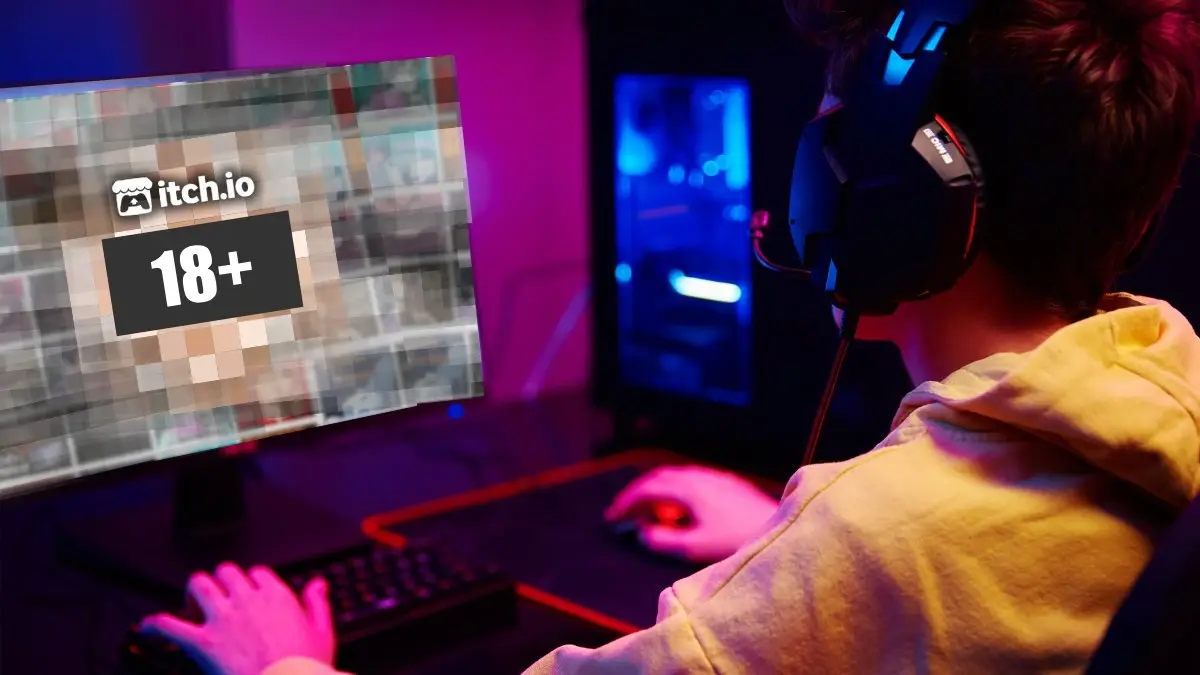Itch.io seeks alternative payment providers after adult content restrictions intensify

The platform continues to review content policies, as Stripe payments are suspended for 18+ material.
Indie storefront Itch.io has confirmed that it is actively searching for alternative payment processors following the recent removal of adult content from its searchable listings. In a new update published on 28 July 2025, the platform shared an addendum to its earlier FAQ, responding to growing concerns from developers and users over content accessibility and the long-term viability of NSFW games on the site.
A few days ago, Itch.io began deindexing a large volume of not-safe-for-work titles (NSFW), meaning they remain available to existing owners but are no longer searchable. This sweeping move came in response to pressure from payment providers, notably Stripe and PayPal, after advocacy group Collective Shout launched campaigns against adult content across several platforms, including Steam, another platform that has started removing certain NSFW content.
While some community members compared the situation to Steam’s more targeted removals, Itch.io clarified that differences in infrastructure have shaped how each company responded. Unlike Steam’s curated model, Itch.io operates as a user-generated content (UGC) platform with over 2 million product pages, making selective enforcement difficult.
“We could not rely on user-provided tagging to be accurate enough for a targeted approach, so a broader review was necessary,” Itch.io explained in its latest update.
Balancing platform integrity with creators' livelihoods
According to the FAQ addendum, the site has suspended the ability to process Stripe payments for 18+ content “for the foreseeable future” while it awaits final decisions from existing providers. In the meantime, Itch.io has begun reaching out to alternative processors that may be more accepting of adult material.
“There are still unknowns that prevent us from providing a fixed timeline,” the team wrote. “Our immediate focus has been on content classification reviews and implementing stricter age-gating on the site.”
The update also highlighted the stakes involved: losing payment support from Stripe or PayPal could jeopardise payouts not just for adult creators, but for all developers on the platform. Despite this, the storefront reassured users that it has no intention of withholding legitimate earnings and urged affected users to back up their games, citing the site’s DRM-free model.
The post further addressed concerns regarding game library access. Pages that were deindexed remain in users’ collections, and downloads are still available unless the creator themselves removed them. In cases where individual games were removed due to terms violations—particularly involving banned content such as sexualised depictions of minors, refunds and account bans were issued as part of long-standing policy.
To improve transparency, Itch.io recently added a more detailed list of prohibited content themes to its adult content policy, aligning with card processing network guidelines. While the company acknowledged that such lists can raise semantic debates, it maintained that offering more clarity, however imperfect, is preferable to remaining vague.
The developments come as pressure mounts on payment processors from both advocacy groups and content creators. Visa and Mastercard have reportedly received numerous emails and phone calls from individuals opposing content restrictions. Meanwhile, the International Game Developers Association (IGDA) released a statement condemning blanket bans on adult games and calling for more equitable treatment of digital storefronts.
Itch.io’s response reflects the tightrope that many independent platforms must walk, balancing regulatory compliance with the need to support creative freedom and financial sustainability for smaller developers.
While the future of adult content on Itch.io remains uncertain, the team has pledged continued communication, and emphasised that ongoing decisions are made with the intent to preserve the platform's accessibility for as many creators as possible.
For now, users are advised to monitor the official FAQ and back up their libraries, as the situation continues to evolve.













